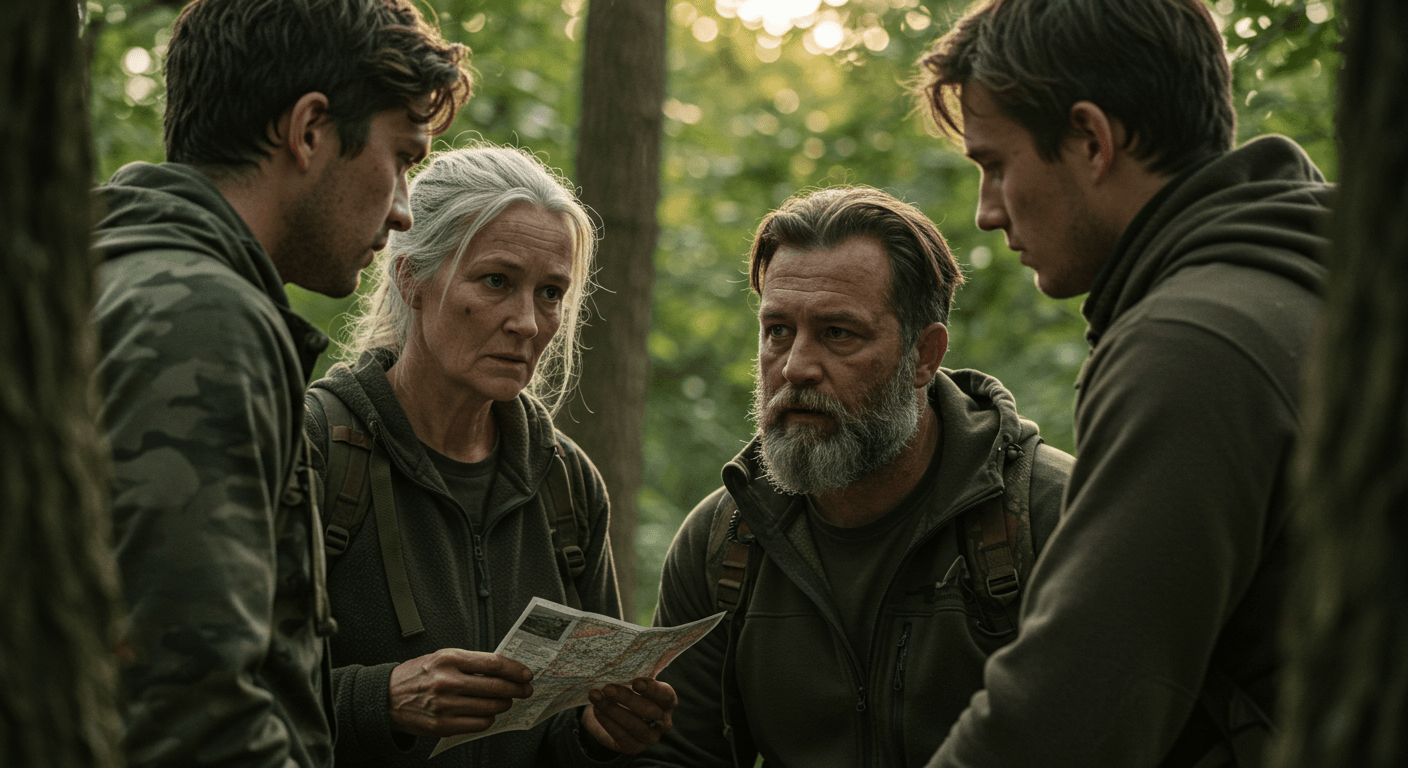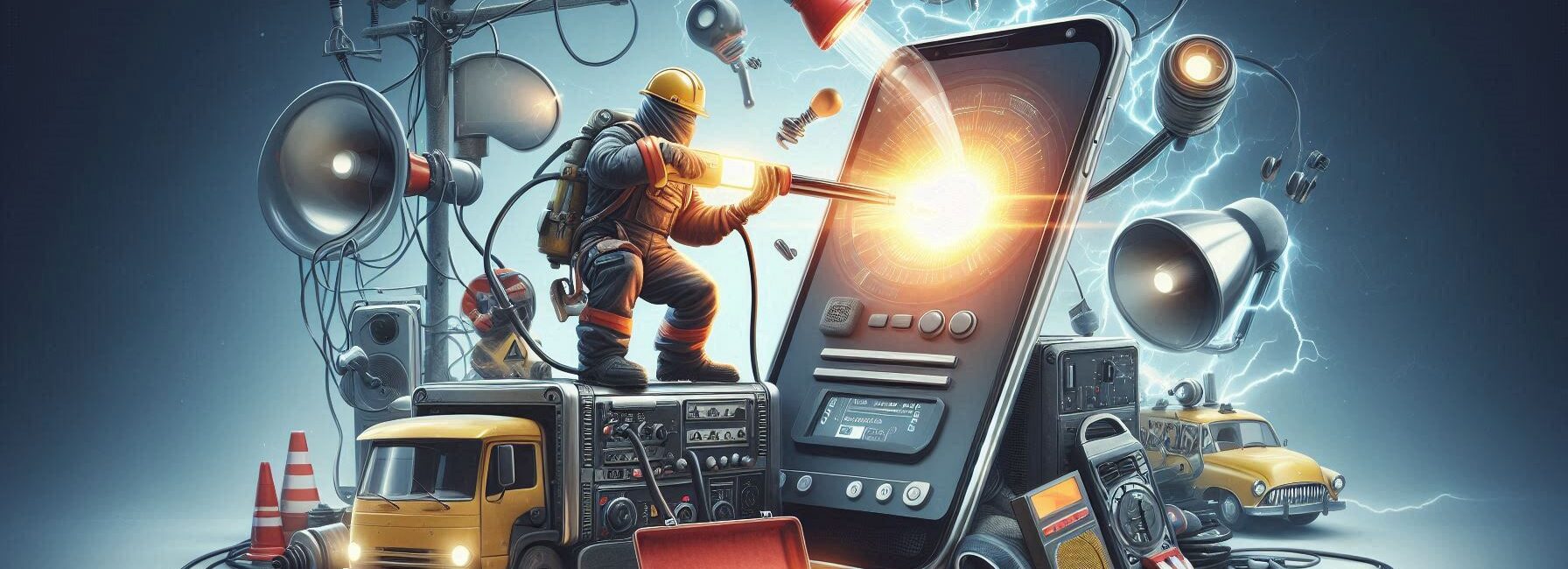Last Updated on November 2, 2025 by Kevin Collier
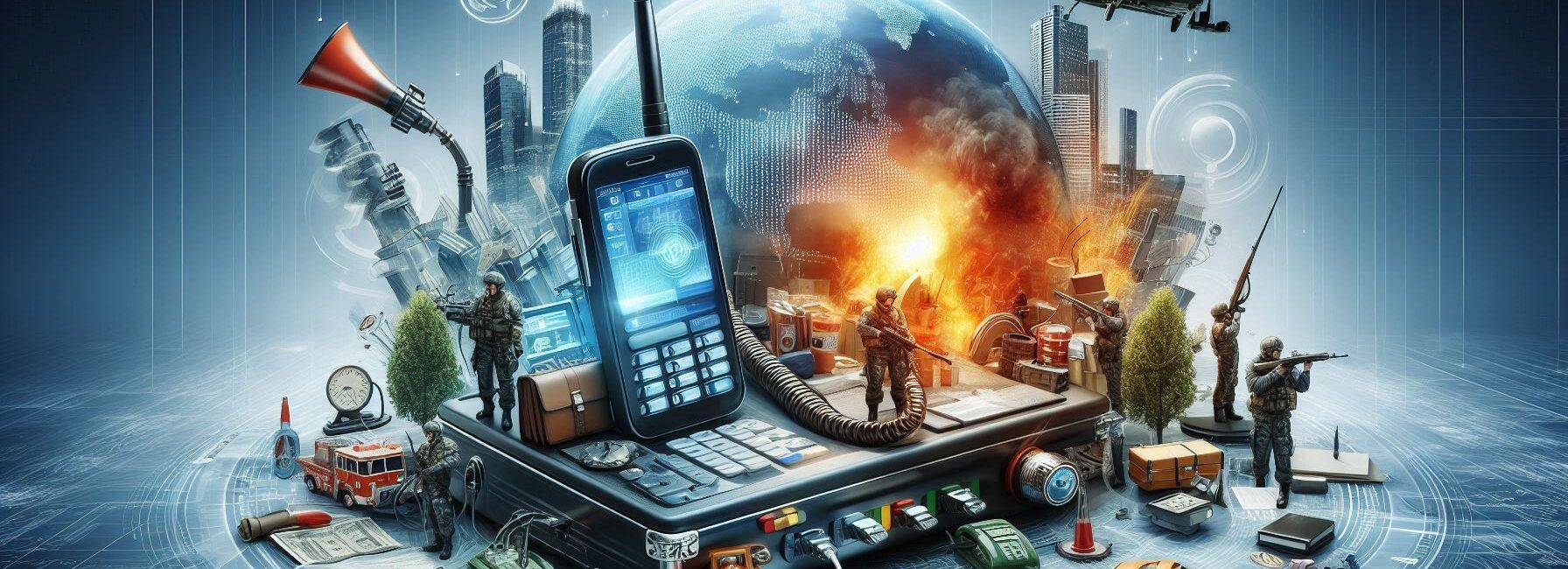
Top Takeaways and Key Concepts
– Create a list of emergency contacts and share it with family and friends.
– Establish meeting points for family members in case of separation during emergencies.
– Develop clear communication methods, such as text messages or phone calls, for updates.
– Regularly review and practice the communication plan to ensure everyone understands it.
– Update the plan as needed, especially after experiencing any changes in circumstances.
Let's be honest. You want to know what to do right away when something unexpected happens, like a big storm or something else. Are you standing about and feeling lost? Not fun at all.
Please Note: This post may contain affiliate links. If you click one of them, we may receive a commission at no extra cost to you. As an Amazon Associate, I earn from qualifying purchases.
That's why it's so helpful to have a plan for how you talk to people. Think of it as a hidden map that tells you where to find your loved ones. This approach will help you stay on track when everything seems to be going wrong. It's like a GPS for when things go hard.
Think about where your family might be right now. Is there a location for them to meet? Perhaps a neighbor's house or a park close by? Picture that place so you can all meet up there if something goes wrong. Does it feel good? Even when things become chaotic, you're all connected.
You can also make plans to talk. Messages? What are you calling? You might have a group conversation. Do what works best for you! Everyone knows what to do because of those plans. Everyone has to work together.
And let's not forget how crucial it is to be calm. Having a plan helps you think clearly, even when things seem crazy. It's like putting on your favorite warm sweater when it's freezing out. It just makes things better.
Every small thing is important. You may write down crucial phone numbers or develop a list of things you need in case of an emergency. Put it on your fridge or in your wallet. Small things can have a tremendous effect.
You'll feel better when you're ready. Being able to get in touch with your family? That feels good. Let's all get together, speak about our plans, and make sure we're all set. That way, we can deal with whatever that comes up like pros. 😊
Contents of This Page
*** Shop for Survival Gear - Tools - Kits ***
Survival Gear - Bags and Backpacks - Knives - Boots/Footwear - Communication
Outdoor Cooking - Gloves - Hydration - Dry Boxes - Water Filtration Systems
Tents - Sleeping Bags - First Aid Kits - Multi-Tools - Flashlights - Fire Starters
Navigation - Survival Food - Night Vision - Headlamps - Stun Guns - Binoculars
Why You Need a Communication Plan

Have you ever tried to holler across a busy campsite? It's about as useful as attempting to get a cat to fetch. In case of an emergency, like a natural disaster, a power outage, or Uncle Bob unintentionally setting the barbecue on fire, you should have clear lines of communication set up ahead of time.
Picture this: you just had an earthquake (or worse, lost Wi-Fi), and everyone is all over the place. If you don't have a plan, you might wind up sending smoke signals or carrier pigeons, which are both less trustworthy than texting “I'm okay” from under the wreckage.
A communication plan makes sure that everyone knows what to do and where to go should things go wrong. You don't want to be playing hide-and-seek with your loved ones when there's a real emergency, trust me!
Find Important Contacts
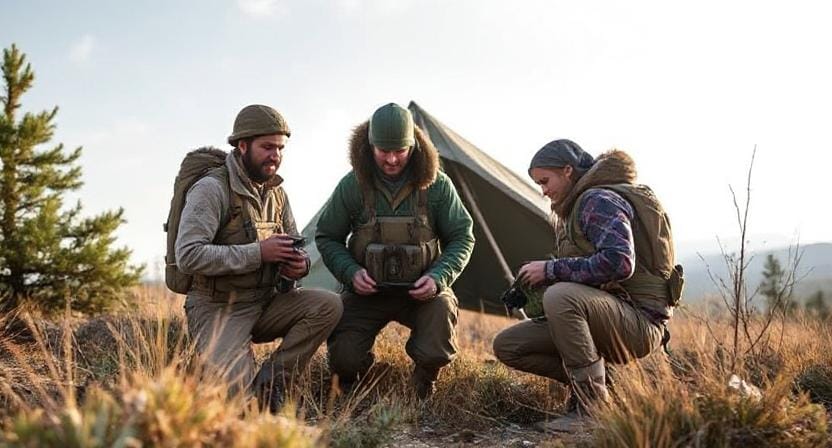
Who do you need to speak with? Make a list of important people to contact in case of an emergency. This should include family members, close friends, and anyone else who needs to know what's going on. We shouldn't forget about Grandma. She needs her daily dosage of news, even if it means surviving the end of the world!
Next, you need to figure out how to talk to these people. Will it be by text? Calls on the phone? Are there smoke signals? To be honest, texting is usually the best way to go because we all know how quickly phone batteries die when we need them the most.
You should also think about adding local emergency services on your list because they usually know what's going on when everything else seems like complete chaos!
Set Up Ways To Talk To Each Other

When you have your essential contacts set up like football players (without helmets), it's time to talk about how you'll get in touch with them during emergencies. Let's see… will social media still work if the power goes out? Spoiler alert: probably not!
If you have immediate family members who live nearby, pick places inside and outside your home where you can meet. Think about what would happen if we were apart at school, work, camp, or the mall when aliens came. Where will everyone meet up again?
For people who live far away, like a cousin who relocated across the country, use group texts or emergency applications. These operate even when there is no mobile coverage because they have Wi-Fi calling features!
Before calamity strikes, make sure everyone has downloaded the app you're using. If not, it'll be like looking for Waldo in an empty field.
Make Messages For Emergencies
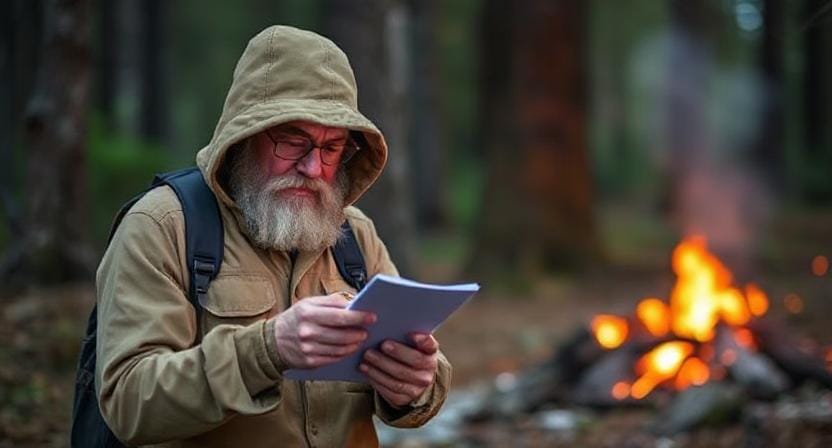
Now that you know who and how you'll talk to people, let's talk about what messages should be sent out in case of an emergency. To be honest, clarity is quite important here. No one wants their loved ones to see messages that are hard to understand, such “Help!” The squirrels are coming for us!
Instead, just give brief updates about your safety (“We're okay!”) and any changes in where you are (“Heading toward Grandma's house!”). Also, give information about available resources, such as food supplies in case someone gets stuck at home. Let's be honest, nothing relaxes nerves like knowing there's pizza involved!
And don't forget to have pre-written texts for different scenarios. They save time when your adrenaline rushes in and it feels like writing clear sentences is impossible.
Make Sure To Practice Your Plan Often
It's interesting that having a plan doesn't mean anything if no one follows it! Set up regular drills with your family so that everyone understands exactly what to do in case of an emergency. This is similar to how you practice for those awkward family dance-offs at weddings.
During these drills, act out different situations so that everyone knows what their part is in the broader communication plan. This way, no one will be staring blankly into space while others rush around looking puzzled.
You may make people feel better about being ready by adding some pleasant things to these practice sessions, such snacks. This will help them not feel scared about prepping for the worst.
Be Flexible And Able To Change
On the other hand, let's be honest: not every circumstance will go as planned! Life has taught us time and time again (thanks again Uncle Bob!) that when a crisis happens, you need to be able to adapt.
After drills, have family members to talk about what worked and what didn't so that changes can be made in the future. After all, being ready doesn't mean adhering to one plan forever!
Keep in mind that being flexible helps teams do well under stress and keep their spirits up, even when things are crazy. and maybe even finding laughter in the unknown!
Frequently Asked Questions
Why is an emergency communication plan important?
It ensures everyone knows how to connect, share updates, and regroup quickly when normal routines are disrupted.
What should be included in an emergency contact list?
Include family members, trusted friends, local emergency services, and any other essential people you must notify during a crisis.
Should families decide on meeting locations ahead of time?
Yes, establishing indoor and outdoor meeting points ensures everyone knows where to go if separated.
Which communication methods work best in emergencies?
Simple forms like text messages often work well because they require less bandwidth than regular phone calls.
How often should the communication plan be reviewed?
Review it regularly and practice it so that every family member can respond without hesitation under stress.
Why should the plan be updated periodically?
Life changes—new jobs, moves, and phone number changes require communication plans to be adjusted and current.
Can pre-written messages help during a crisis?
Yes, they save time and reduce confusion when fast, clear communication is needed.
Suggested Resources:
Emergency Preparedness Guide
https://www.ready.gov/guide
How To Create a Family Emergency Plan
https://www.redcross.org/get-help/how-to-prepare-for-emergencies.html
Communication During Emergencies
https://www.fema.gov/emergency-communication

Kevin Collier is a seasoned survivalist and expert in prepping and homesteading, contributing to WiseSurvive.com. With a deep-rooted passion for self-sufficiency and outdoor survival skills, Kevin shares practical advice, strategies, and resources to help individuals prepare for any challenge. His informative articles cover a range of topics, from essential survival techniques to sustainable living practices, empowering readers to thrive in any situation. Whether you're a novice or a seasoned prepper, Kevin's insights will inspire you to take charge of your readiness and build resilience for the future.


